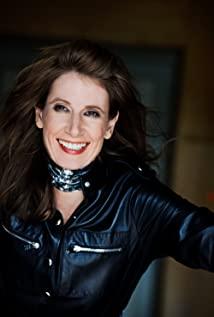With Arendt's knowledge, upbringing, talent, and character, he is complete and complete, and he will naturally shine when he stands in the crowd. Arendt happens to be not only intellectual, but emotional. In the early years, he read a lot of poetry and philosophy. He has a profound humanistic background and a sensitive and delicate mind. After that, he devoted himself to the public domain and engaged in the research of political philosophy, which was almost monopolized by men. What is the charm of Hannah, who is famous all over the world? In the biographical film "Arendt", a German intellectual who was exiled to the United States during World War II formed a friendly intellectual circle around Arendt. As a correspondent for The New Yorker, Arendt personally participated in the trial of Nazi commander Eichmann and put forward the shocking concept of "banal evil". She wrote reviews for The New Yorker magazine, which she later published as Eichmann in Jerusalem. It is precisely because of this book that Arendt was turned against by relatives and friends, cast aside by everyone, and was in a difficult situation. Under the harsh public opinion environment at that time, it is difficult to imagine that this book will become a well-known classic in the field of humanities and social sciences in many years. Although the concept of "banality and evil" still has many disputes, its shining brilliance can never be erased. . As a scholar, Arendt is only faithful to his own rational judgment, his writing is not influenced by external public opinion, and he always adheres to the bottom line of intellectuals; as a friend, Arendt is warm and friendly, witty, alert, cheerful and generous. Although he has experienced a lot of pain and darkness, he still retains his inner noble nature; as a wife, Arendt is gentle and considerate, charming and charming. When getting along with her husband Heinrich, he changed his academic rationality and rigor, showing the tenderness of women; as a lover, Arendt tried his best to cooperate with Heidegger and carefully concealed the fact of extramarital affairs. After experiencing ruthless abandonment and betrayal, and being familiar with Heidegger's personality flaws, he still helped him and redeemed him regardless of previous suspicions.
The world loves gossip. In the field of humanities, this extramarital affair between Heidegger and Arendt is particularly eye-catching. But of course we know that lace news can easily hurt two full and intellectual minds, and they cannot escape the fate of being simplified, obliterated, and over-consumed. But what exactly have we learned from the two philosophers?
Love is the eternal topic of life, but it is not the only topic of life. The light of intellect and the fire of lust have also ignited the passion of life.
Ms. Cui Weiping's article "A Defense of Arendt" is actually more like a defense of Heidegger's injustice. In all fairness, Hai's situation after World War II, although unfair, was mostly self-inflicted. Heidegger's personality flaws that could not be erased were repaired by Arendt in his later years. For Arendt, perhaps this charming man who once shaped her spiritual world not only appeared in front of her eyes as a teacher at first, but also participated in Arendt as her father, brother, confidant, lover, etc. life. The notch is deep and permanent. Heidegger was always the person Arendt wanted to keep but did not keep, an incomplete circle, a tiny crack in life. Fortunately, Arendt's affectionate feelings eventually evolved into a deep friendship, which was strictly limited to friends, otherwise the goddess could still be abused.
From the plot point of view, the relationship between Arendt and Heinrich is strong and powerful. This relationship is soft, delicate, warm, healing, a marriage of equality and tenderness. In this relationship, Arendt is kept intact, she receives and she gives.
View more about Hannah Arendt reviews










